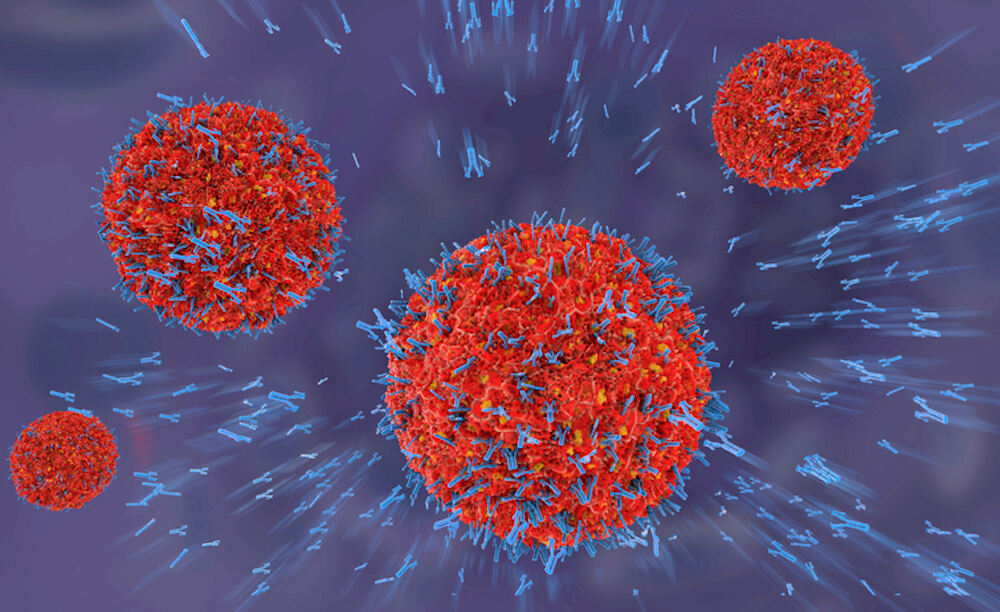Key Takeaways
- Antibodies are proteins used by the immune system to tag dangerous invaders and disable them. They are considered one of the most promising approaches to COVID-19 treatment.
- Dana-Farber researchers and colleagues have identified “potent neutralizing antibodies” that could be used in the fight against COVID-19.
Dana-Farber researchers, with colleagues at Columbia University and the National Institutes of Health, have identified a diverse set of antibodies that effectively neutralize the coronavirus responsible for COVID-19, a key step in the development of agents to treat and prevent the disease.
As reported in Nature, the antibodies exhibited “exquisite potency” against the virus, thwarting its ability to enter and infect human cells. By attaching to several parts of the virus’s Spike protein — which binds to a cell receptor to allow the virus into the cell — the antibodies essentially denied the virus access to the cell interior.
Dana-Farber’s Joseph Sodroski, MD, who participated in the study, noted, “Potent neutralizing antibodies could be used to lessen the severity of COVID-19 disease and could cooperate with vaccines to prevent coronavirus infections.”
The promise of antibodies

While efforts are under way to develop a vaccine to prevent infection by the novel coronavirus, researchers are also working on treatments that would benefit those who have already been infected. (So far, only one drug, remdesivir, has been approved by the U.S. Food and Drug Administration to treat patients with COVID-19.) Antibodies, which are proteins used by the immune system to tag dangerous invaders and disable them, are considered one of the most promising approaches to treatment.
For the new study, investigators recruited 40 patients who were infected with the novel coronavirus and had severe respiratory disease that required use of a mechanical ventilator. The researchers tested the patients’ blood for virus-neutralizing antibodies and selected the five samples with the highest levels of these antibodies. They then screened the samples for antibodies that could bind to the Spike protein and neutralize the coronavirus.
They identified 19 such antibodies, including nine that showed exquisite potency and blocked most virus particles from infecting cells. The success rate may be due to the fact that the antibodies targeted two separate sites on the Spike protein (along with two other areas that overlap with these sites), making the protein a poor fit for the cell receptor.
According to the researchers, the fact that the two sites, called RBD and NTD, attracted roughly equal numbers of antibodies indicates that both sites are “quite immunogenic” — capable of eliciting an active immune response. The findings will help scientists better understand how antibodies bind to the coronavirus — critical information for any antibody-based therapy and for the design of vaccines.
